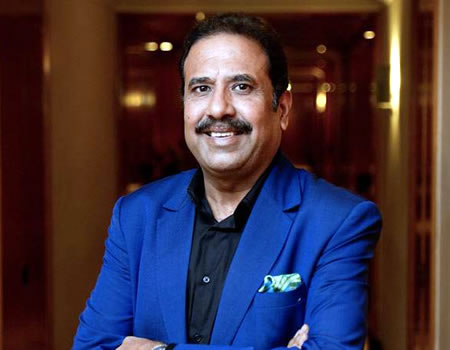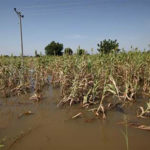
In a continent of over a billion people, the information and communications technology (ICT) market in Africa, excluding South Africa is valued at only $10 billion. South Africa’s ICT market is valued at over $22 billion. The country alone accounts for about 68 per cent of the entire market in Africa which makes the continent’s figure of $32 billion appear skewed.
This was revealed by Mr Ramesh Awtaney, Founder and Chairman of ISON Group during his presentation on “Bringing Intellectual Property to Work: Create Onshore Model, Target Offshore Opportunities”, at the 2017 London Business School’s Africa Business Summit.
Awtaney examined the opportunities in Africa’s ICT sector in relation to India’s industry where ICT is playing a massive role. According to him, ICT is the propelling factor in India’s 6.5 per cent average annual GDP growth for past two decades and at present commands a 10 per cent share of the country’s GDP.
He also disclosed that 38 per cent of India’s export are ICT services.
“In the $2 trillion economy, the sector rakes $100 billion of exports. The best case of ICT export in Africa is that of Kenya where contribution is 0.06 per cent of GDP.
“India has been on its ICT journey since the 1990s. Globally, the country represents 55 per cent of the ICT offshore market. The $100 billion ICT offshore industry has capitalised on the availability of educated youths.
“This was achieved through the engagement of all stakeholders through training. If the domestic market is included, the sector is worth $200 billion. In 2015, approximately 230,000 new jobs were added in India’s ICT sector, while the sector’s current overall employment figure remains well north of 10 million,” he said.
According to him, this feat was not achieved on the back of profound innovation or sudden breakthrough, but a collective determination to get things done by government, academia, and industry experts as a means to fuel economic growth.
Awtaney is convinced that what India did in 25 years can be achieved by Africa within five to 10 years if India’s model can be replicated.
“Like India, all Africa requires is commitment to attain this height. The youth population of India in the age group 15-34 is 400 million while Africa is comparable with 300 million youth.
“The ICT sector requires only one material which is educated youth which Africa seems to have in abundance. Furthermore, in Africa, not only English but French, German, Spanish and Arabic are also widely spoken.
“In the 1990s and early 2000, offshore was the buzzword in India as jobs moved from Europe and America to India, whereby know how of processes became the intellectual properties. As economies begin to grow in Africa, there is a need to outsource non-core functions. This can be achieved in two ways. Either one brings work to intellectual property or knowledge (intellectual property) to work. The Indian model is that of former in which businesses from other countries bring the work to India,” he added.
Awtaney believes this is called work to Intellectual Property (IP). According to him, ISON, when it was founded six years ago in Africa, decided to do the latter.
Elaborating further, he revealed that ISON brought the knowledge from India to Africa instead of taking work from Africa to India. “Today,” he said, “ISON has created over 10,000 jobs, having employed over 20,000 people since its inception. Interestingly enough, to create these 10,000 jobs, $20 million has been invested.”
“In no other industry can one make an impact of 20,000 jobs with 20 million dollars. With these 20,000 well-trained and skilled employees, the ‘Knowledge Base’ has been created and this would help propel the growth domestically,” he stated.
WATCH TOP VIDEOS FROM NIGERIAN TRIBUNE TV
- Let’s Talk About SELF-AWARENESS
- Is Your Confidence Mistaken for Pride? Let’s talk about it
- Is Etiquette About Perfection…Or Just Not Being Rude?
- Top Psychologist Reveal 3 Signs You’re Struggling With Imposter Syndrome
- Do You Pick Up Work-Related Calls at Midnight or Never? Let’s Talk About Boundaries






